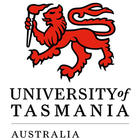Bachelor of Dementia Care
Bachelor of Dementia Care
The Dementia Care Program offers Australia’s first degree in dementia care and sets a high standard for the value and knowledge graduates will bring to the aged care and health sectors. It is available to domestic and international students, from carers to health professionals and anyone with an interest in…
Categories
COURSE DESCRIPTION
The Dementia Care Program offers Australia’s first degree in dementia care and sets a high standard for the value and knowledge graduates will bring to the aged care and health sectors. It is available to domestic and international students, from carers to health professionals and anyone with an interest in studying dementia.
With the rise in prevalence in dementia and the need to provide quality care in the community, health care centres and hospitals, and in residential care, it is becoming essential that health care workers in aged care develop specialised knowledge in this field so that you can make a difference to the lives of people living with dementia.
This course has been developed by the Wicking Dementia Research and Education Centre, global leaders in dementia education with a mission to transform the understanding of dementia worldwide.
This is a fully online course with no exams, face to face study, or workplace assessment component. Dedicated Student Advisers are on-hand throughout the course, providing support and guidance throughout your studies. Our program can be studied full-time or part-time, offering you a choice to graduate with a:
Diploma (8 units, completed over a maximum of 3 years)
Associate Degree (16 units, completed over a maximum of 5 years)
Bachelor Degree (24 units, completed over a maximum of 7 years)
Course objectives
Dementia is a neurological condition that affects tens of millions of people across the globe, posing significant challenges to people living with dementia, their families, communities and the health care sector. The Dementia Care Program provides students with a deep knowledge of dementia, the changes that occur in the brain, the behaviours and needs associated with changes, and practical strategies necessary to help care for people living with dementia.
Second and third years of study offer the opportunity for a more in-depth exploration of research, policy, neurobiology, and specialised approaches to care and therapy, as well as to develop skills in evaluation and critical thinking.
Students will gain advanced problem-solving skills, along with an understanding of the importance of evidence-based practice. Graduates will be prepared for a range of career paths in the aged care and health sector.
Learning Outcomes: 1 Apply knowledge of the biology of the nervous system to explain dementia pathology and symptoms across its trajectory 2 Evaluate the multidisciplinary evidence for dementia risk reduction and approaches to optimise the health and social care of people living with dementia 3 Evaluate and design collaborative, person centred approaches to inclusion, support and care of diverse people living with dementia and their families 4 Propose evidence-based strategies to share knowledge and influence improvements to dementia care 5 Evaluate how evidence is generated and translated into health and social care for older people including those living with dementia.
Career outcomes: Individuals with backgrounds in healthcare, community service and allied health professionals, may find study in this course advantageous – and opportunities for Recognition of Prior Learning (or credit) are available. There are a growing number of leadership and case management positions in dementia care, which require qualifications higher than aged care certificates. Leadership roles, and specialist positions in the aged care sector are increasingly calling for tertiary level qualifications such as the Dementia Care Program. The Diploma and Associate Degrees are particularly relevant to aged care workers and health professionals wishing to develop their skills and knowledge in dementia. The Bachelor Degree offers additional learning about research and the understanding of how evidence may be translated into clinical care practice.
REQUIREMENTS
Admission to undergraduate courses at the University of Tasmania requires the completion of qualifications equivalent to a 12th year of education in Australia.
You can also meet the General Entry Requirement for this course with the following qualifications or prior studies:
Completion of an equivalent AQF Certificate III or above
Complete or incomplete (minimum 25 credit points) of previous tertiary study at Bachelor level or higher
IELTS (Academic) Score 6.5 (no individual band less than 6.5)
TOEFL (iBT) 88 (no skill below: Reading 21; Listening 21; Speaking 21; Writing 25)
PTE Academic 58 with no score lower than 58
English for Academic Purposes 2 – 65% (no individual score less than 65%)
Cambridge English C1 Advanced 176 with no less than 176 in any skill
EDUCATIONAL INSTITUTION
The University of Tasmania was officially founded on 1st January 1890 and is located at Sandy Bay, Tasmania. In addition to the main campus at Sandy Bay, it also operates out of the Newnham Campus and the Cradle Coast Campus. The most popular courses offered are the environmental studies that include wilderness management, marine sciences and indigenous studies in Tasmanian literature. Other unconventional courses include agriculture development, studies on the community and population and ocean study programs. The university also comprises of a Music Conservatorium, Art school and a School of Clinical studies.




